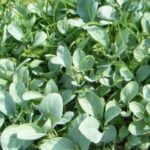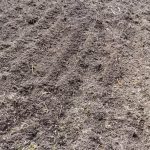Nutrient-rich soil is crucial for the success of vegetable gardens, providing the necessary sustenance for plants to thrive and produce a bountiful harvest. One natural and effective way to enrich the soil in organic gardening is through the use of manure.
Manure has long been recognized as a valuable fertilizer due to its ability to enhance soil fertility, improve nutrient content, and promote healthy plant growth. However, before incorporating manure into your vegetable garden, it’s important to understand its benefits, risks, and proper application techniques.
Manure comes in various forms, with some of the most common types being cow, horse, chicken, and composted manure. Each type has different qualities and nutrient profiles that make them suitable for specific crops or garden conditions. The benefits of using manure in vegetable gardens are numerous. Not only does it provide essential nutrients like nitrogen, phosphorus, and potassium, but it also helps retain moisture in the soil while improving its structure.
Selecting the right type of manure is crucial to ensure optimal results. Factors such as composting duration, age of manure, and source should be considered when choosing the appropriate type for specific vegetable crops. Moreover, it is essential to address potential risks associated with manure usage. Contamination with pathogens or weed seeds can lead to detrimental effects on plant health. Therefore, it’s important to follow guidelines and take necessary precautions to mitigate these risks.
In this article, we will explore in detail the different aspects of using manure in vegetable gardens. From selecting the right type of manure to understanding proper application techniques and addressing concerns related to its usage-this comprehensive guide will equip you with all the information you need to make informed decisions about incorporating manure into your organic gardening practices.
Remember that while there are alternatives available for soil enrichment in vegetable gardens, when used safely and following recommended guidelines, manure can be a valuable asset in growing nutrient-rich and healthy vegetables.
What is Manure
Manure is a valuable organic material that is commonly used in vegetable gardens to enrich the soil and provide essential nutrients for plant growth. It is important for gardeners to understand the different types of manure available and how they can benefit their vegetable crops.
There are several types of manure that are commonly used in vegetable gardens, including:
- Cow Manure: Cow manure is one of the most popular types of manure due to its availability and nutrient content. It is high in nitrogen, phosphorus, and potassium, which are essential for plant growth.
- Horse Manure: Horse manure is another commonly used type due to its high nutrient content. It can be a bit more challenging to find compared to cow manure, but it provides similar benefits for vegetable plants.
- Chicken Manure: Chicken manure is particularly rich in nitrogen, making it excellent for promoting healthy leafy growth in vegetables. However, it should be composted before using it in the garden to prevent burning the plants with its high nitrogen levels.
- Sheep and Goat Manure: Sheep and goat manures are also good options for vegetable gardens as they contain a balanced mix of nutrients like nitrogen, phosphorus, and potassium.
When selecting the right type of manure for your vegetable garden, consider factors such as composting, age, and source. Composting manure helps break down any potential pathogens or weed seeds present in the fresh manure while also converting nutrients into forms that are readily available to plants.
Age also plays a role as well-aged or composted manure tends to have fewer odor issues and lower levels of potential pathogens. As for the source of manure, it’s generally best to use animal waste from organic farms or trusted sources that follow proper management practices.
Overall, incorporating well-composted or aged manure into your vegetable garden can significantly improve soil fertility and provide essential nutrients for healthy plant growth. Understanding the different types of manure available and their nutrient contents can help you make informed decisions when enriching your vegetable garden soil.
| Type of Manure | Nutrient Content |
|---|---|
| Cow Manure | High in nitrogen, phosphorus, and potassium |
| Horse Manure | High in nutrients, similar to cow manure |
| Chicken Manure | Very high in nitrogen, needs composting before use |
| Sheep and Goat Manure | Contains a balanced mix of nutrients like nitrogen, phosphorus, and potassium. |
Benefits of Using Manure
Manure serves as a valuable resource for vegetable gardens, offering numerous benefits that can contribute to the overall health and productivity of plants. One of the primary advantages of using manure is its ability to improve soil fertility. Manure contains essential nutrients like nitrogen, phosphorus, and potassium that are crucial for plant growth. These nutrients are slowly released into the soil over time, providing a steady supply of nourishment for vegetables.
In addition to enhancing soil fertility, manure also helps enhance the nutrient content of the soil. When organic matter in manure decomposes, it releases micronutrients such as calcium, magnesium, and trace minerals into the soil. These micronutrients are vital for healthy plant growth and can significantly impact the yield and quality of vegetables.
Furthermore, manure promotes healthy plant growth by improving soil structure. It helps loosen compacted soils and increases their water-holding capacity. This improved structure allows roots to grow more deeply into the ground and access moisture and nutrients effectively. Additionally, manure improves soil aeration by increasing its porosity, allowing oxygen to reach the roots.
Overall, using manure in vegetable gardens has clear benefits in terms of improving soil fertility, enhancing nutrient content, and promoting healthy plant growth. It provides a natural and sustainable method of enriching the soil without relying on synthetic fertilizers. By incorporating well-composted or aged manure into garden beds or using it as a top dressing around plants, gardeners can enjoy bountiful harvests while maintaining an environmentally friendly approach to organic gardening.
Selecting the Right Manure
Understanding Different Types of Manure
When it comes to selecting the right manure for your vegetable garden, it’s important to understand the different types available and their specific benefits. Some common types include cow manure, horse manure, chicken manure, and sheep manure. Each type has its own nutrient profile and characteristics that can influence plant growth differently.
Cow manure is one of the most popular choices for vegetable gardens due to its balanced nutrient content. It provides a good mix of nitrogen, phosphorus, and potassium (N-P-K), as well as trace elements like calcium and magnesium. Horse manure is another excellent option, especially if you have access to well-rotted or composted material. It has similar nutrient characteristics to cow manure but may contain higher levels of weed seeds if not properly composted.
Chicken manure is highly potent in terms of nitrogen content but should be used with caution. Its high nitrogen levels can burn plants if applied in excess or without proper composting. Sheep manure is also nitrogen-rich but tends to have a lower carbon-to-nitrogen ratio compared to other types. This means that it decomposes more quickly and can release nutrients into the soil faster.
Factors to Consider When Selecting Manure
In addition to understanding the different types of manure available, there are several factors you should consider when selecting the right one for your vegetable crops.
Firstly, consider the age and condition of the manure. Fresh manure may contain high levels of ammonia that can harm plants, so it’s generally recommended to age or compost it before using it in your garden. Composting not only reduces potential pathogens but also helps stabilize nutrient availability in the soil.
Another important factor is the source of the manure. It’s essential to know where your manure comes from to ensure it has been sourced from animals that have not been treated with antibiotics or other medications. This is particularly important if you are practicing organic gardening.
Lastly, consider the composting processes used. Some manures may be sourced from organic farms that follow strict composting procedures to ensure a high-quality product. Look for manure labeled as “composted” or “well-rotted” to ensure it has undergone proper decomposition and is safe to use in your vegetable garden.
By considering these factors and understanding the characteristics of different types of manure, you can make an informed decision on which manure is best suited for your specific vegetable crops and gardening practices.
Risks and Precautions
Manure can be a valuable addition to vegetable gardens due to its ability to improve soil fertility and enhance nutrient content. However, it’s important to be aware of the potential risks associated with using manure in your garden. One of the main concerns is contamination with pathogens or weed seeds that may be present in the manure.
To mitigate these risks, follow these guidelines when using manure in your vegetable garden:
- Composting: Composting manure before adding it to the garden can help reduce the risk of pathogen contamination. The heat generated during composting kills harmful microorganisms, making the manure safer to use. Ensure the compost pile reaches temperatures of at least 131°F (55°C) for several days to effectively kill pathogens.
- Age of Manure: Fresh manure is more likely to contain higher levels of pathogens and weed seeds compared to aged or well-rotted manure. Ideally, let fresh manure sit for at least six months before using it in your garden. This allows time for decomposition and reduces the risk of introducing harmful organisms.
- Source Selection: Choose a reliable source for obtaining manure that follows proper animal management practices and takes measures to prevent contamination. Avoid using manure from animals that have been fed antibiotics or other medications, as it may contain traces of these substances.
- Hot Composting Method: Another option is hot composting method, where you layer fresh plant material between layers of manure and turn the pile frequently, maintaining temperatures above 131°F (55°C). This process helps kill any potential pathogens present in the manure.
- Proper Handling and Storage: When working with manure, always wear gloves and wash your hands thoroughly afterward to minimize any potential exposure to harmful bacteria. Store your manure in a covered bin or container away from direct sunlight until it’s ready for use.
By following these precautions, you can minimize the risks associated with using manure in your vegetable garden. It’s also important to note that thorough cooking or washing of any vegetables grown with manure can further reduce the risk of bacterial contamination. With proper care and attention, manure can be a safe and effective way to enhance the productivity of your vegetable garden while maintaining organic practices.
Proper Application Techniques
In order to utilize manure effectively in vegetable gardens, it is important to follow proper application techniques. This ensures that the nutrients from the manure are properly absorbed by the plants and minimizes any potential risks associated with its usage. Here are some recommended methods for incorporating manure into vegetable garden soil:
- Composting: Composting manure before applying it to your vegetable garden is highly recommended. This process helps break down organic matter in the manure, reducing the risk of pathogens or weed seeds being introduced into the soil.
To compost manure, mix it with carbon-rich materials such as straw or dry leaves in a compost bin or pile. Regularly turning the compost will help accelerate decomposition and create a nutrient-rich humus that can be added to your garden beds. - Mixing in small amounts: When using fresh or partially decomposed manure, it is important to mix it into the soil in smaller amounts to avoid overwhelming the plants with excessive nutrients. Dig a 4 to 6-inch trench along each row of vegetables and spread a thin layer of manure into the trench.
Cover it with soil and repeat this process until all rows have been treated. This allows for gradual release of nutrients while preventing nutrient imbalances that can harm plant growth. - Timing application: The timing of when you apply manure can also impact its effectiveness in vegetable gardens. It is best to incorporate manure into the soil at least several weeks before planting your vegetables.
This allows time for any potential toxins or harmful bacteria present in fresh manure to decompose and become less potent. Additionally, applying manure during fall season allows it more time to break down over winter months, ensuring rich and fertile soil for spring planting.
By following these proper application techniques, you can effectively incorporate manure into your vegetable garden soil while minimizing any potential risks. Remember to always wear gloves and wash your hands thoroughly after handling manure to further reduce the risk of contamination. With careful application and attention to timing, manure can greatly enhance the fertility and nutrient content of your vegetable garden.
| Application Technique | Description |
|---|---|
| Composting | Mix manure with carbon-rich materials in a compost bin or pile to break it down and create nutrient-rich humus. |
| Mixing in small amounts | Spread thin layers of fresh or partially decomposed manure into trenches along each row of vegetables before covering with soil. |
| Timing application | Incorporate manure into the soil several weeks before planting or during fall season for optimal decomposition and nutrient release. |
Alternative Soil Amendments
In addition to using manure, there are several other options available for enriching vegetable garden soil. These alternatives include compost, organic fertilizers, and green manure. While manure is a popular choice due to its nutrient content and ability to improve soil fertility, it’s important to explore other options and compare their effectiveness before making a decision.
Compost is a highly regarded soil amendment that can provide numerous benefits to vegetable gardens. Made from organic matter such as kitchen scraps, yard waste, and leaves, compost is rich in nutrients and helps improve soil structure. It also enhances water retention and promotes beneficial microbial activity in the soil. Using compost in vegetable gardens can lead to healthier plants, increased yields, and reduced reliance on synthetic fertilizers.
Organic fertilizers are another option for enriching vegetable garden soil without using manure. These fertilizers are derived from natural sources such as bone meal, fish emulsion, or seaweed extracts. They provide essential nutrients like nitrogen, phosphorus, and potassium to support plant growth. Organic fertilizers can be slow-release or water-soluble depending on their composition, allowing for gradual nutrient release over time or quick absorption by plants respectively.
Green manure is a practice that involves growing specific cover crops in vegetable garden beds to improve soil health. Legumes like clover or vetch are commonly used as green manures because they have the ability to fix nitrogen from the air into the soil through their roots.
When these cover crops are tilled or mowed down before they reach maturity, they break down into organic matter that enriches the soil with nutrients. Green manure not only adds fertility but also helps suppress weeds and prevent erosion.
While each alternative has its advantages, it’s essential to consider factors such as cost-effectiveness, availability of materials, and specific nutrient requirements of different vegetable crops when selecting a soil amendment. Experimenting with different options based on the unique needs of your vegetable garden can help you find the most suitable and effective amendment for your soil.
Case Studies and Expert Opinions
Success Stories: Using Manure for Bountiful Vegetable Gardens
Real-life examples demonstrate the transformative power of incorporating manure into vegetable gardens. These success stories provide valuable insights into the benefits and potential outcomes of using manure as a soil amendment.
One such case study comes from a small-scale organic farm in rural Vermont. Farmer Jane Smith noticed a decline in her vegetable crop yields and sought ways to revitalize the soil. After extensive research, she decided to incorporate chicken manure into her garden beds.
Over the course of several growing seasons, Smith observed significant improvements in plant growth and overall soil health. The addition of manure not only increased nutrient availability but also improved water retention, leading to healthier plants, larger harvests, and even more vibrant colors in the vegetables.
In another instance, renowned gardener and author John Green shared his experience with utilizing horse manure in his vegetable garden. When Green first began gardening, he struggled with poor soil quality that hindered his crop production. Desperate for a solution, he introduced composted horse manure into his garden beds.
Within just a few weeks, Green noticed an incredible difference – his tomato plants grew taller and produced larger fruits than ever before. Inspired by this success, Green continued to use horse manure as his primary soil amendment, achieving consistent results year after year.
Expert Opinions: The Value of Manure in Vegetable Gardening
Agricultural specialists and seasoned gardeners often endorse the use of manure for vegetable gardens due to its exceptional value as a natural fertilizer and soil conditioner.
According to Dr. Sarah Wilson, an agricultural scientist at a leading research institution, “Manures are an excellent source of essential nutrients for vegetables. They contain high levels of nitrogen, phosphorus, and potassium – vital elements necessary for healthy plant growth.” Dr. Wilson further emphasizes that proper application techniques are crucial to maximize the benefits and mitigate any associated risks.
Renowned gardener and horticulturist, David Johnson, also recognizes the significance of manure in organic gardening. “I’ve seen countless gardens thrive after incorporating well-composted manure,” he shares. Johnson emphasizes the importance of using fully composted manure to minimize the risk of pathogens and weed seeds while providing a balanced nutrient profile for vegetables.
These expert opinions align with the positive experiences shared by gardeners and farmers alike. Together, they highlight the effectiveness of manure as a reliable resource for enriching vegetable garden soil and achieving abundant harvests.
Frequently Asked Questions
As the use of manure in vegetable gardens becomes more popular, it’s natural for gardeners to have questions and concerns about its impact on their plants and the environment. In this section, we will address some of the most frequently asked questions related to the use of manure in vegetable gardens.
- How does using manure affect soil pH?
- What should I do about potential odor issues?
- Are there alternatives to using manure for vegans?
Using manure can have a slight impact on soil pH, as different types of manure have varying levels of acidity or alkalinity. Generally, fresh manure tends to be more acidic, while aged or composted manure is closer to neutral pH.
However, the impact on soil pH is usually minimal and can be easily corrected by adding certain amendments like lime if necessary. It is always recommended to test the soil before adding any amendments to ensure optimal growing conditions for your vegetables.
Manure can sometimes produce unpleasant odors that may linger in your garden if not managed properly. To mitigate odor issues, it is important to properly compost or age the manure before applying it to your vegetable garden. Composting allows microorganisms to break down organic matter including ammonia, which is often responsible for strong odors. Additionally, proper mixing and incorporation of manure into the soil can help reduce surface odors and allow them to dissipate over time.
For those who follow a vegan lifestyle or are concerned about using animal-based products in their gardening practices, there are several alternatives available. Compost made from plant-based materials such as kitchen scraps, leaves, and yard trimmings can be an excellent substitute for manure in providing essential nutrients to your vegetable plants.
Additionally, organic fertilizers derived from plant sources like alfalfa meal or green sand can also be used effectively as they offer a range of nutrients necessary for healthy plant growth.
By addressing these common concerns and queries, we hope to provide gardeners with the necessary information to make informed decisions about using manure in their vegetable gardens. While manure can be a valuable resource for improving soil fertility and promoting healthy plant growth, it is crucial to follow proper guidelines for application and take necessary precautions to ensure safety.
Always remember that testing your soil, composting or aging the manure, and considering alternatives are essential steps in maintaining a thriving vegetable garden.
Conclusion
In conclusion, the use of manure in vegetable gardens can provide numerous benefits when done correctly and with proper precautions. Throughout this article, we have discussed the importance of nutrient-rich soil in vegetable gardening and how manure can play a vital role in achieving that goal. By improving soil fertility, enhancing nutrient content, and promoting healthy plant growth, manure proves to be a valuable resource for organic gardeners.
However, it is crucial to select the right type of manure for specific vegetable crops and take into account factors such as composting, age, and source. This helps mitigate potential risks associated with contamination of pathogens or weed seeds. Additionally, employing proper application techniques like composting, mixing in small amounts, and timing application optimally ensures optimal results.
While manure remains a popular choice for soil enrichment in vegetable gardens, there are also alternative options like compost, organic fertilizers, and green manure that can be equally effective. It is essential to explore these alternatives further to find the best fit for individual gardening needs.

If you’re looking to get into vegetable gardening, or are just looking for some tips on how to make your current garden better, then you’ve come to the right place! My name is Ethel and I have been gardening for years. In this blog, I’m going to share with you some of my best tips on how to create a successful vegetable garden.





